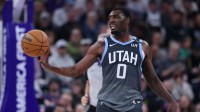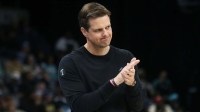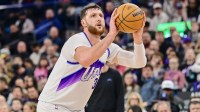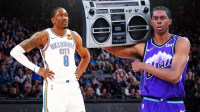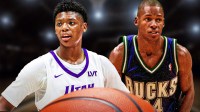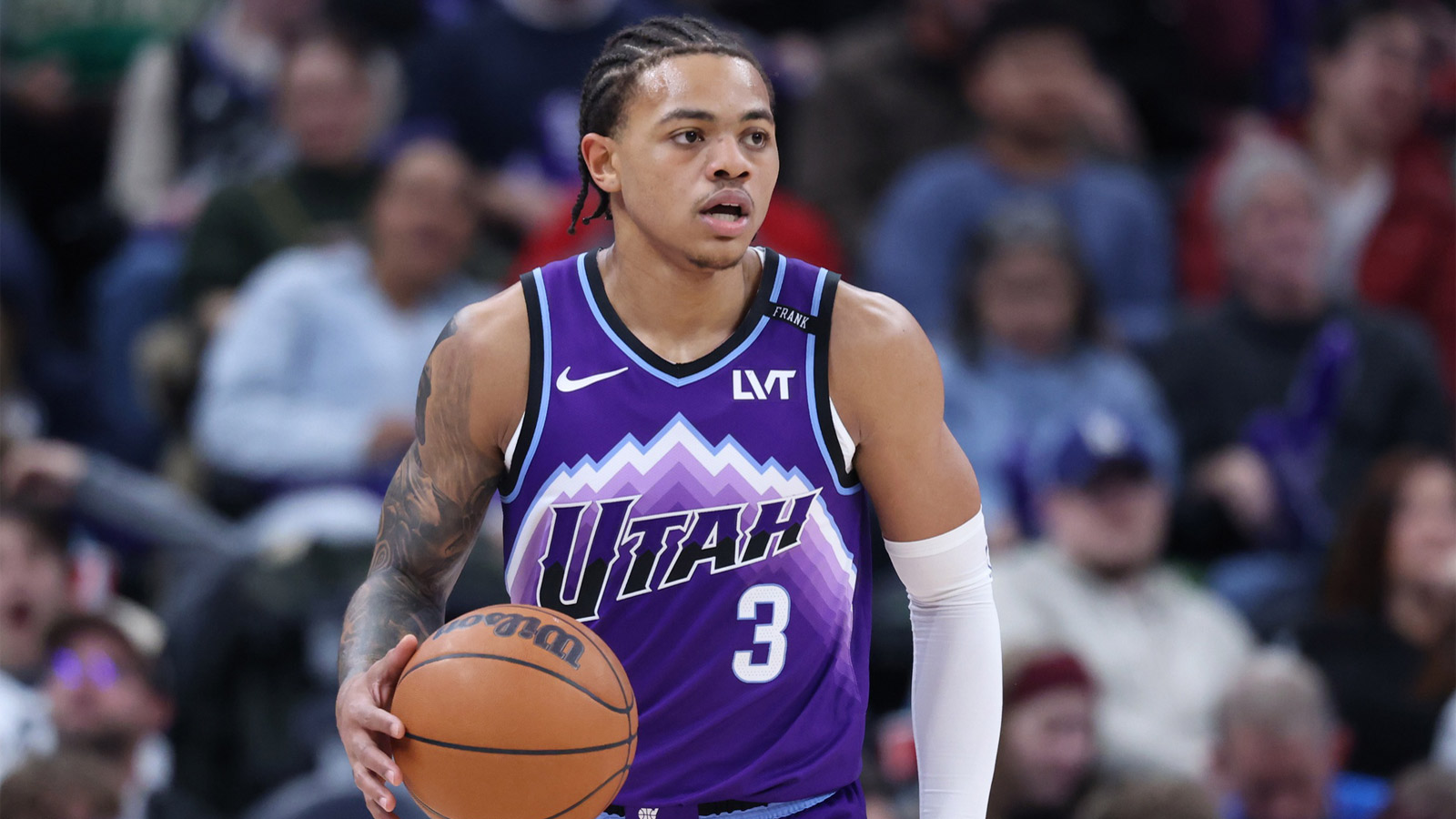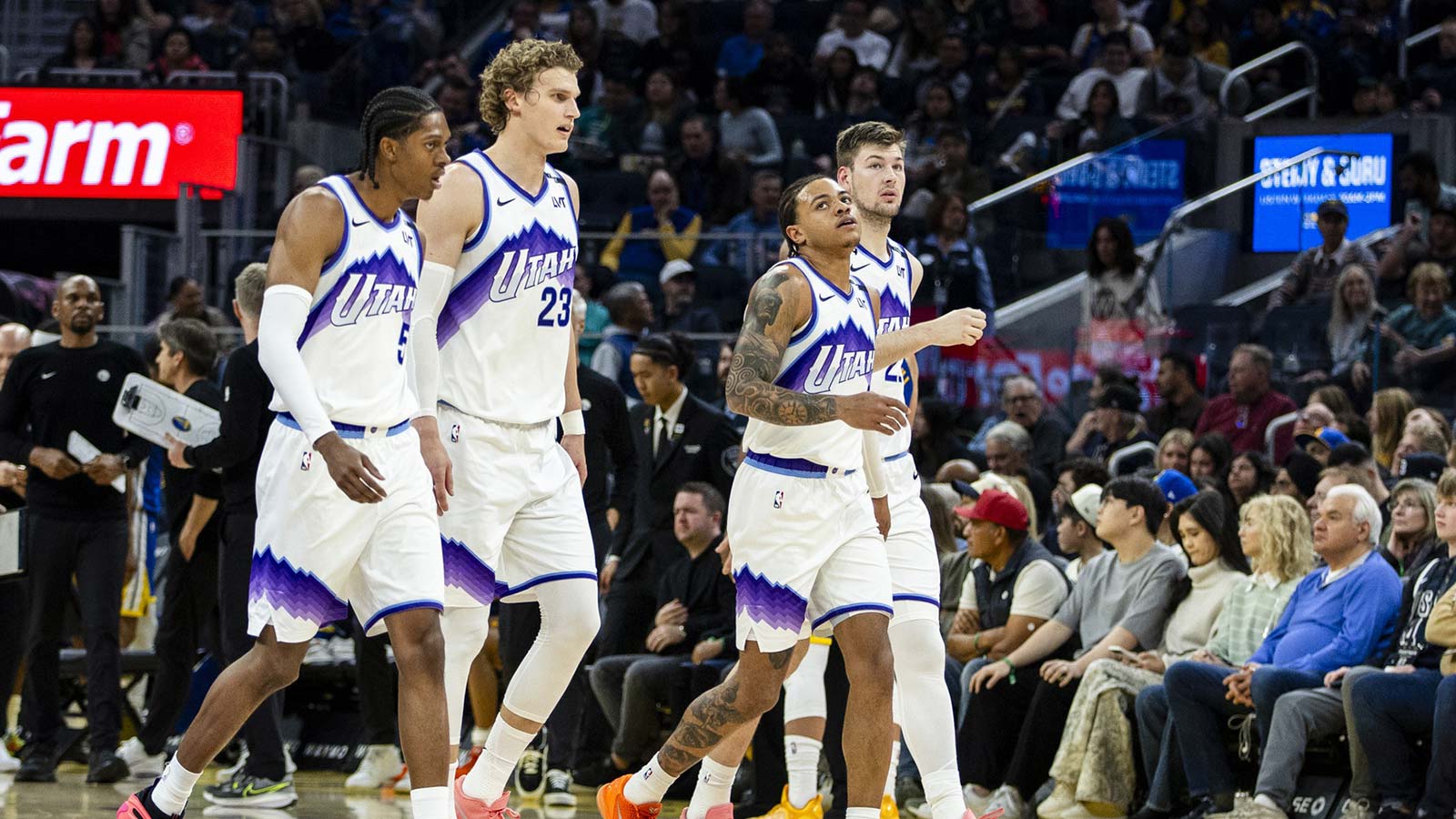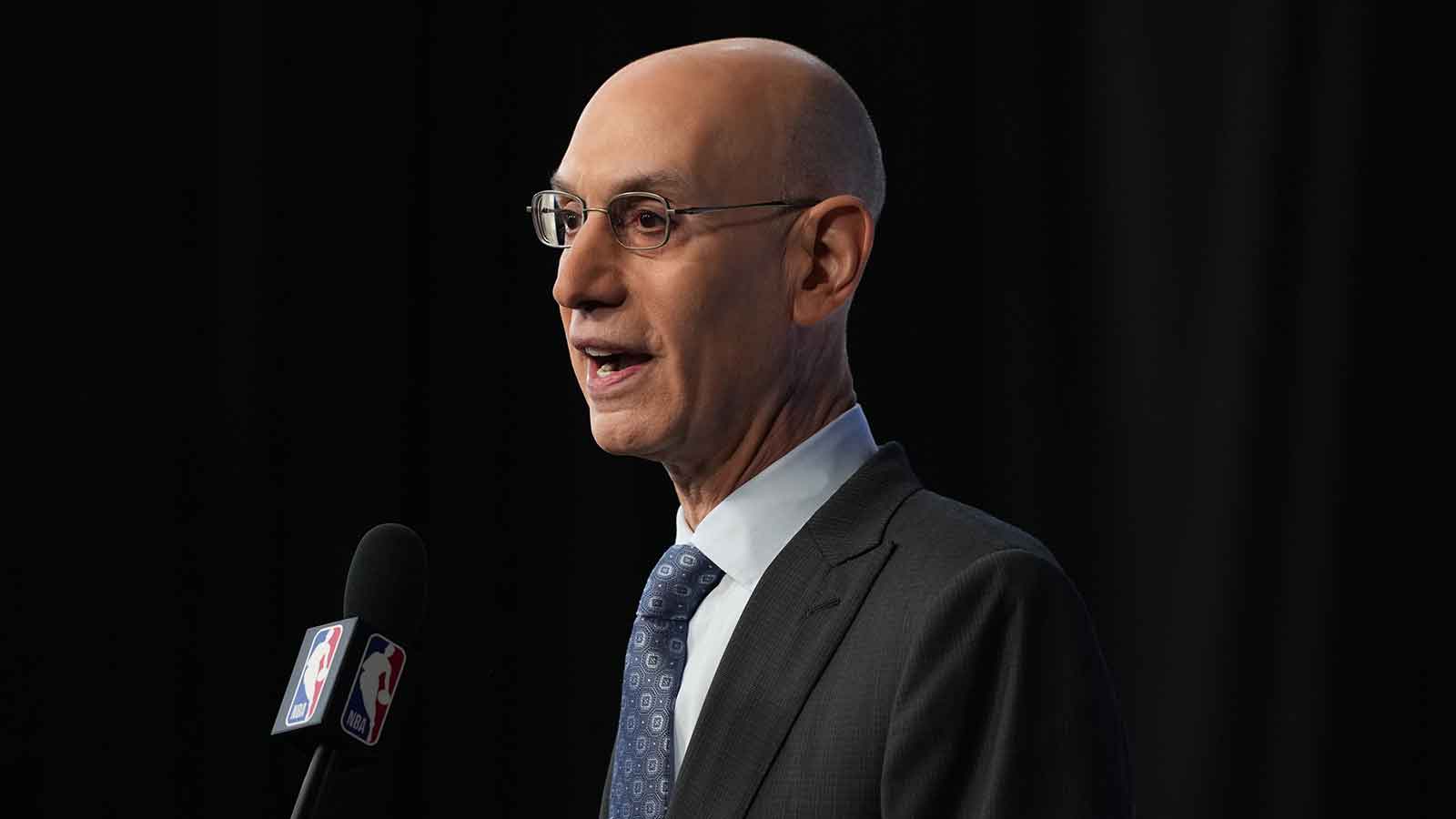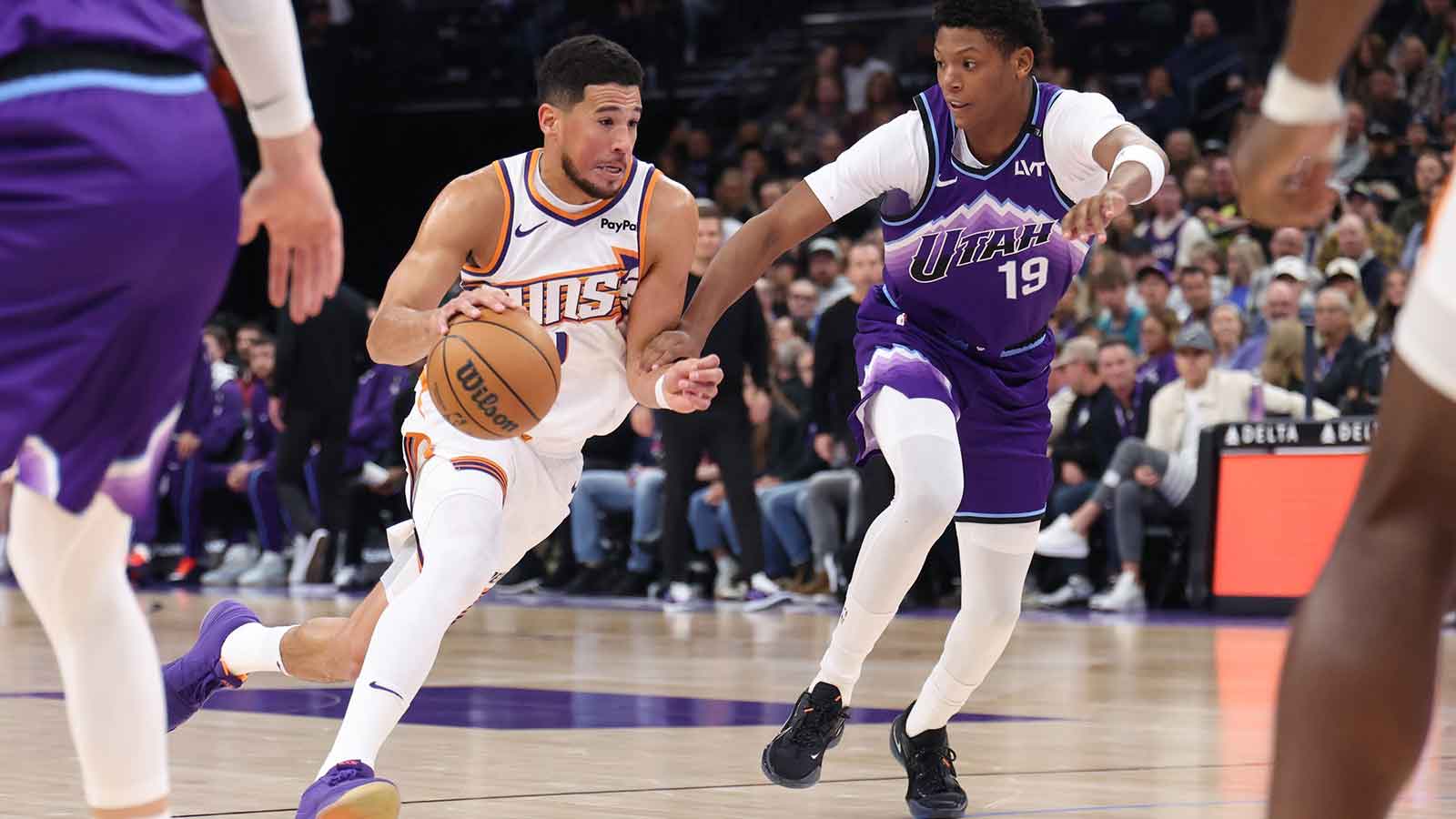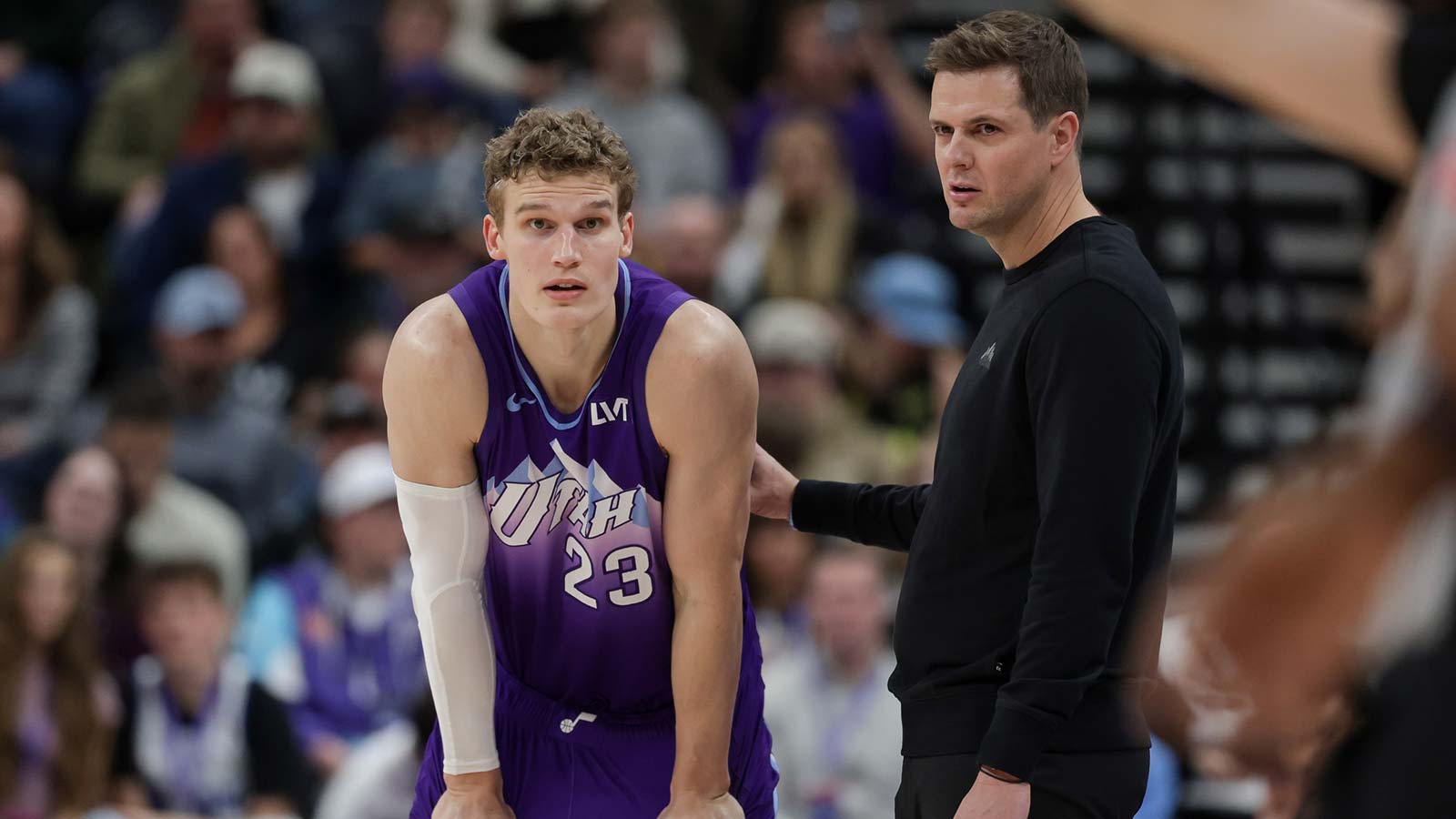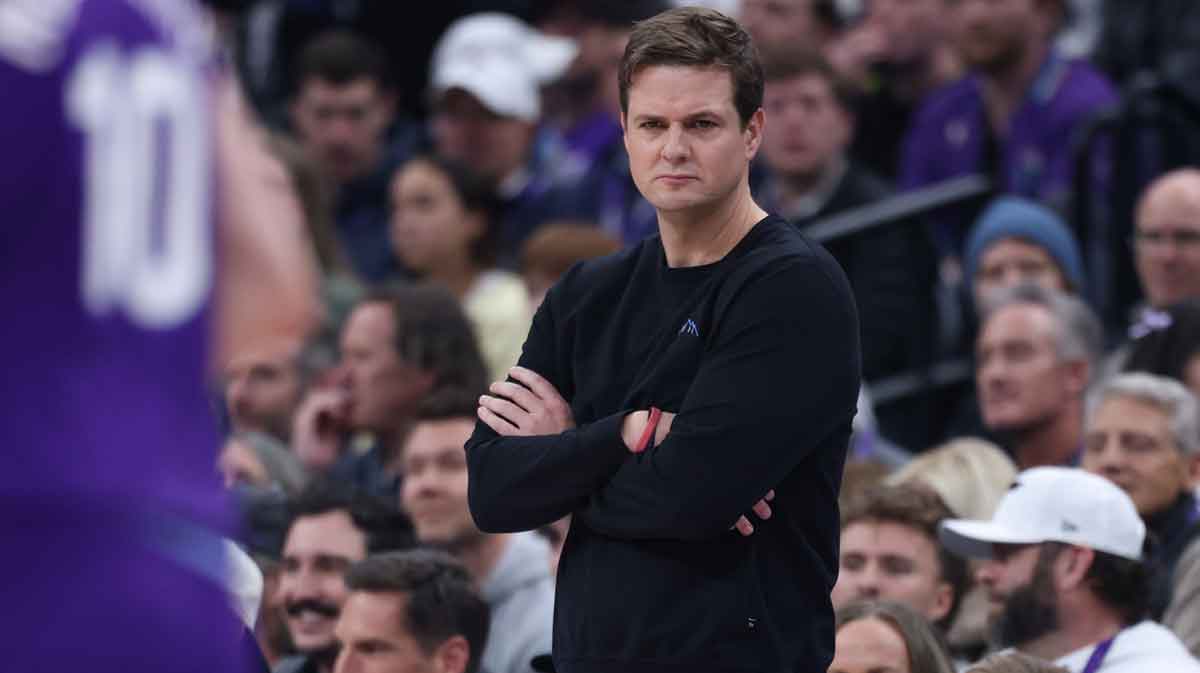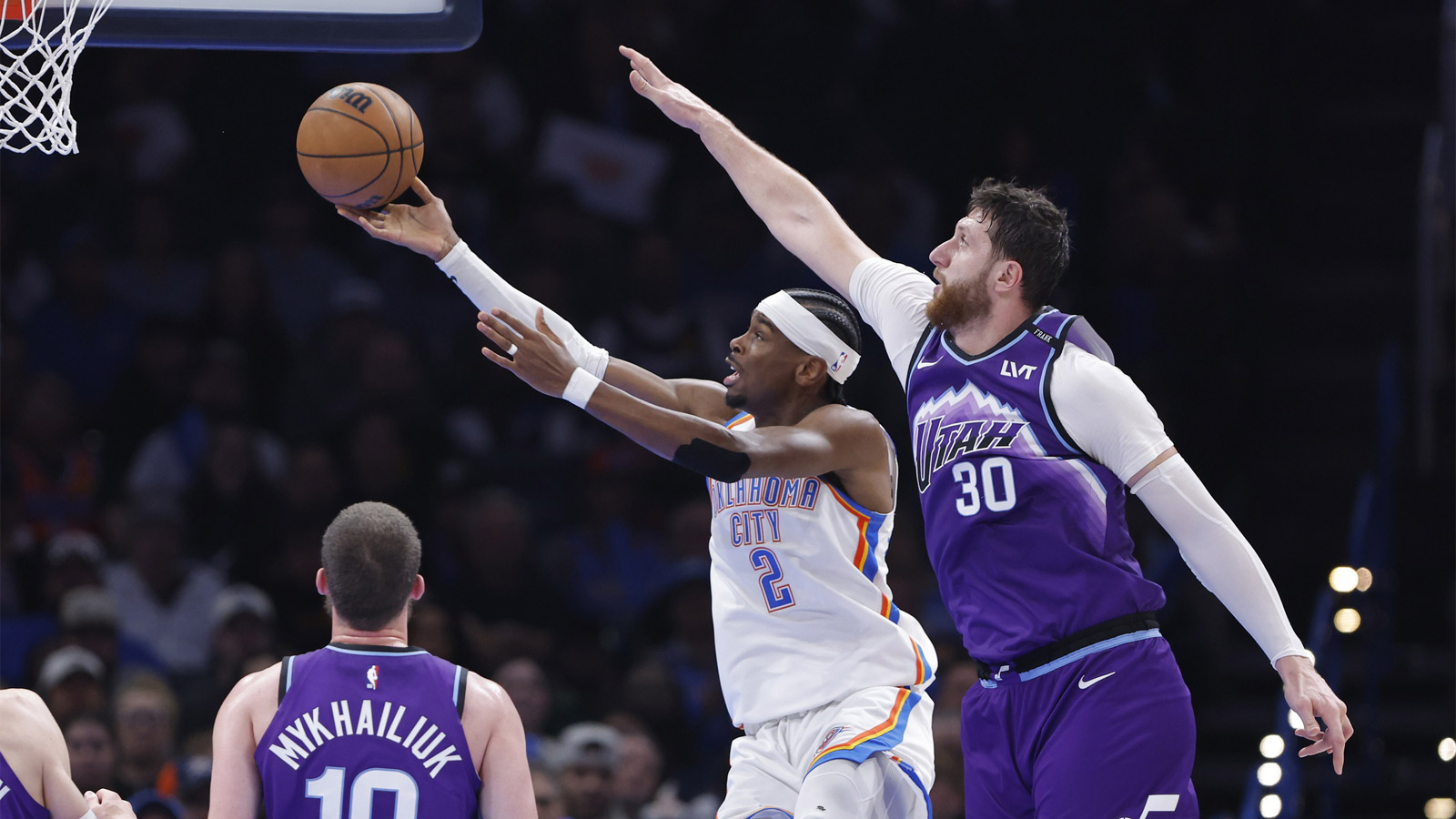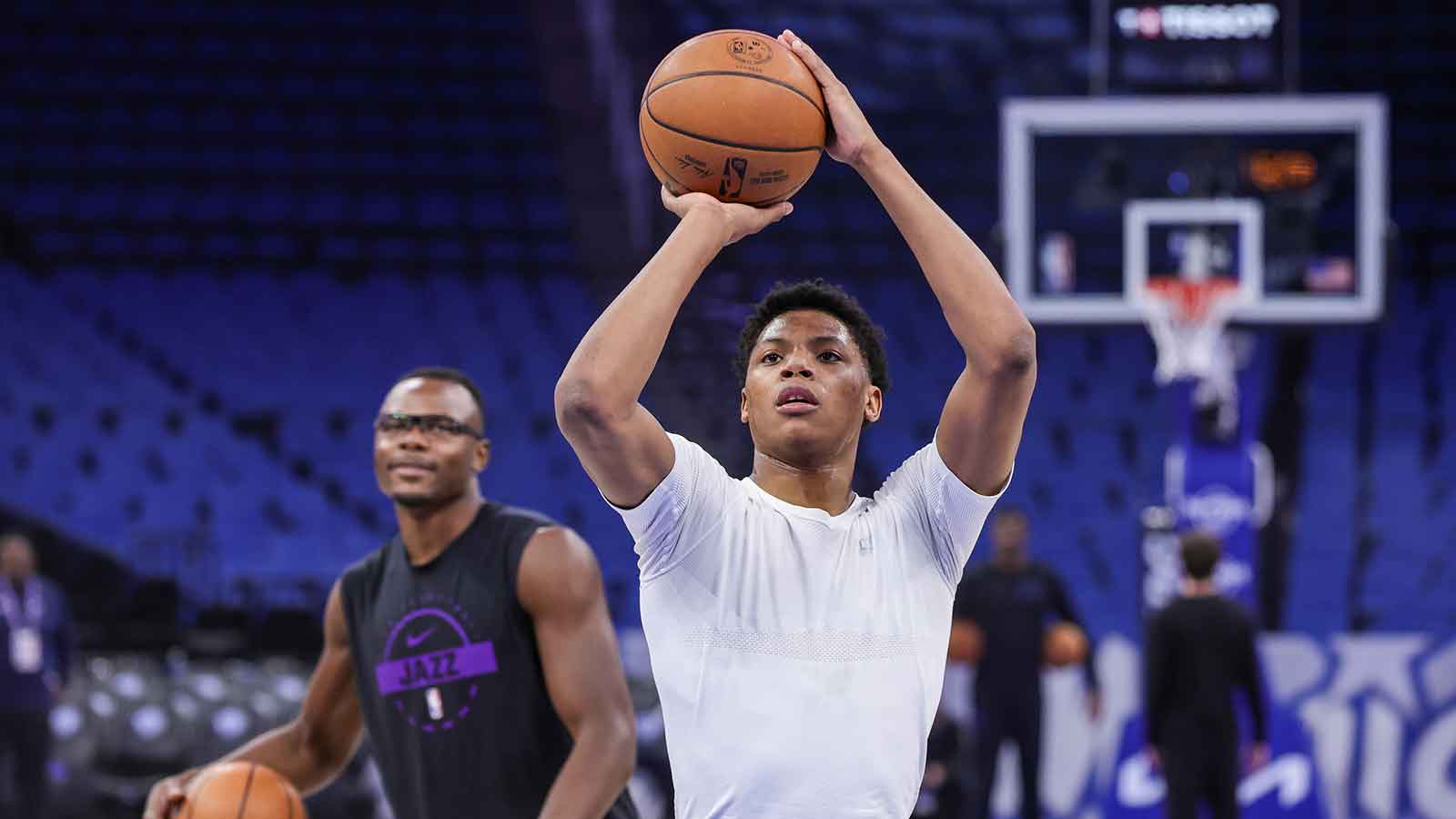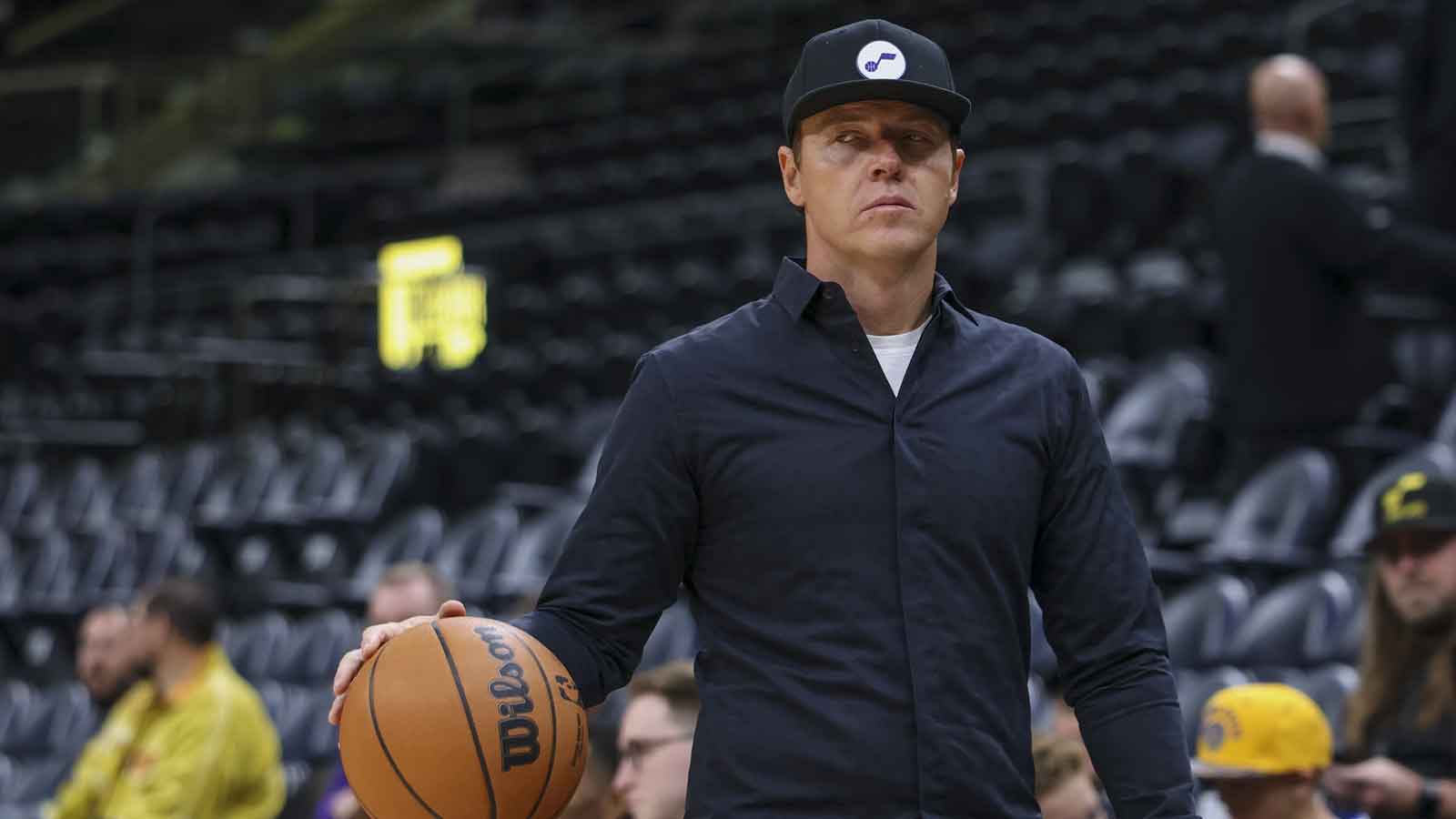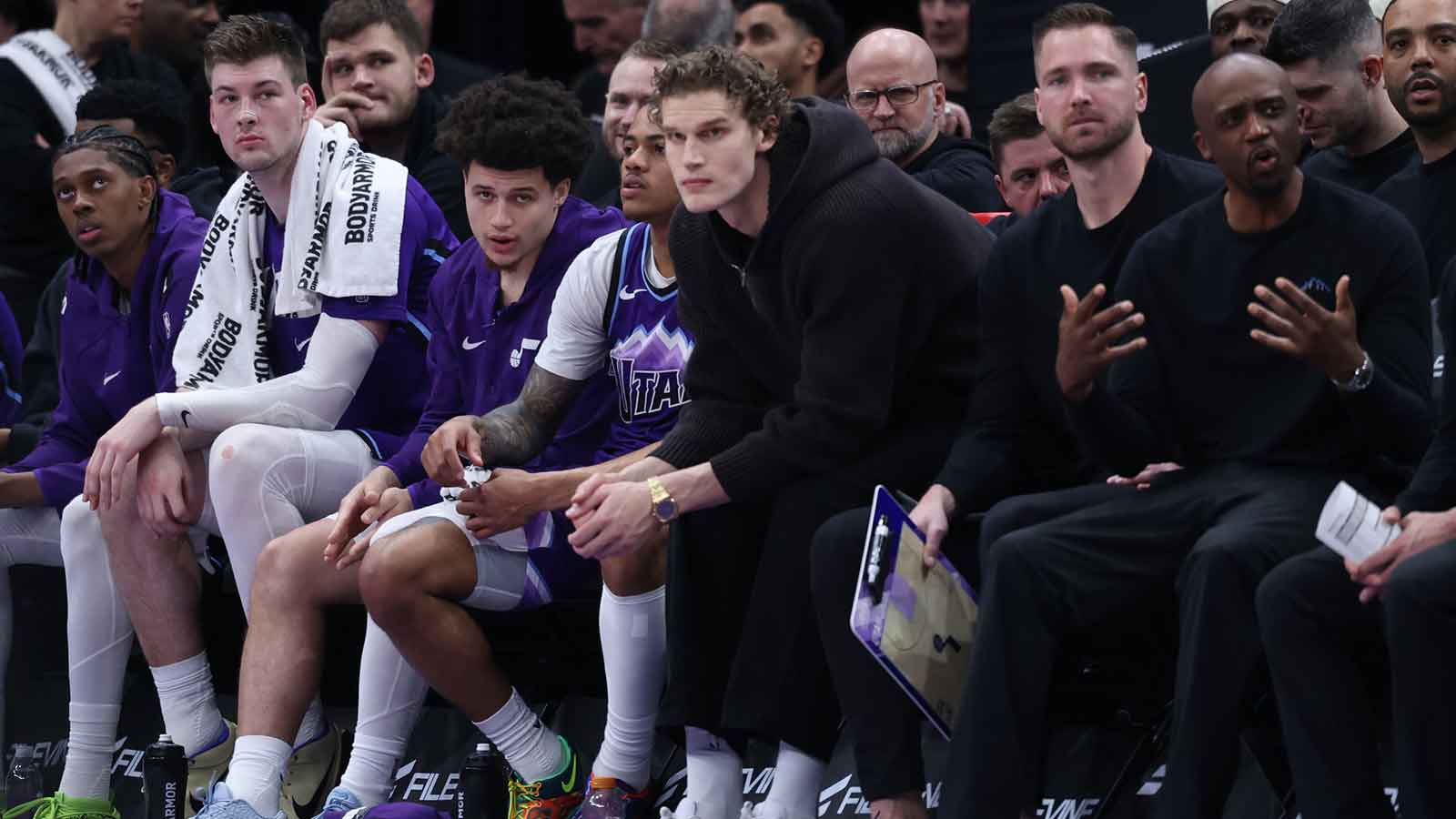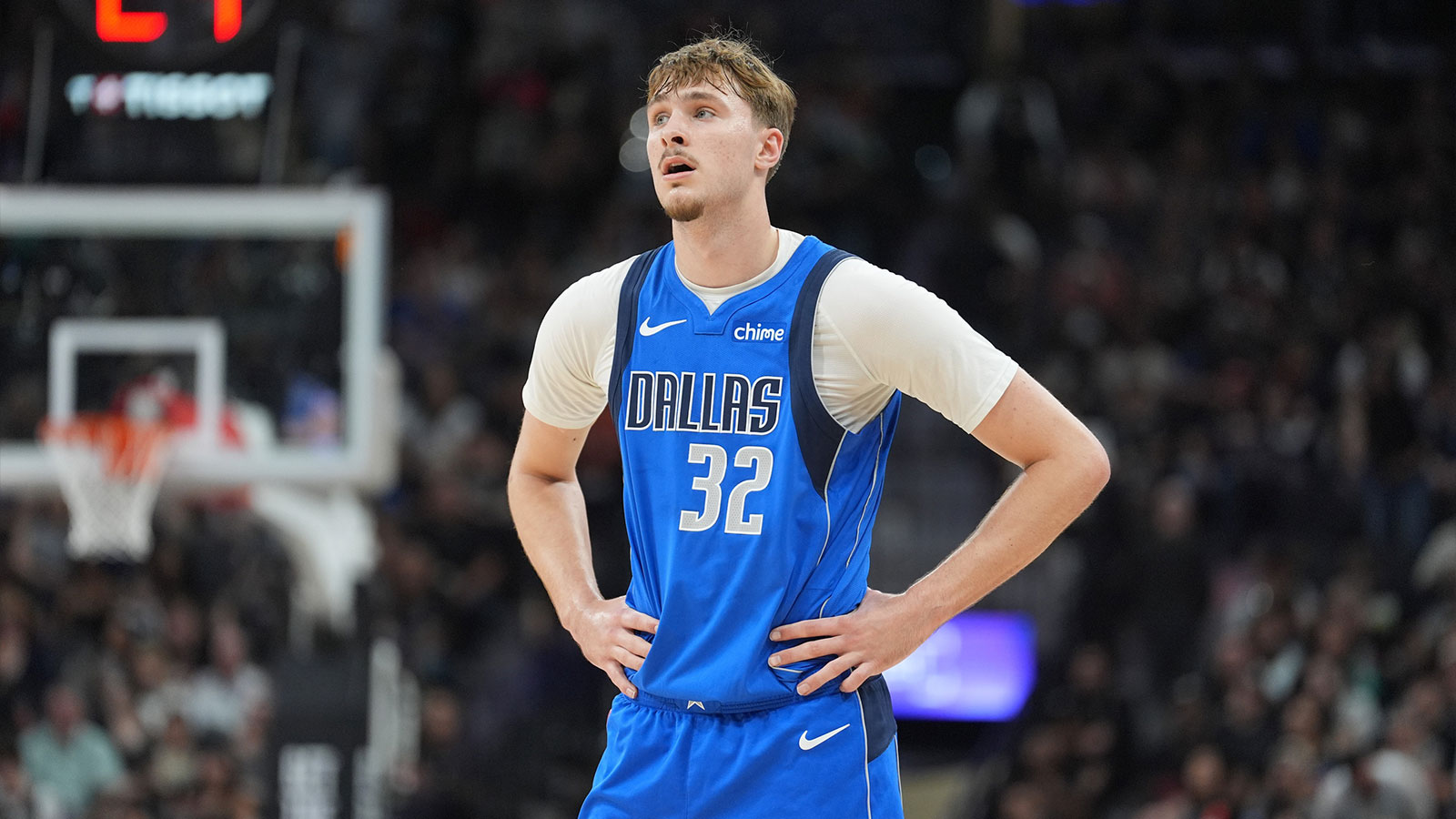The NBA season isn’t so much a sprint or marathon as it is a time-lapsed sociological experiment. With 30 teams playing almost 4,000 minutes each, the teams in the playoffs now and what they were on opening night are the same in jerseys only.
Since opening night, the Utah Jazz have grown, adjusted, coalesced, and evolved. Having a set DNA helped to do it that much quicker.
On Nov. 17, an injury-riddled Jazz team faced a spunky Brooklyn Nets team. Absent defensive ace Rudy Gobert, Utah hemorrhaged 39 first-quarter points on 51.2 percent shooting—giving up 118 points in a loss.
Gobert would play in only six of the next 28 games, of which Utah won only 12.
Against Brooklyn, Utah showed the framework of its egalitarian offense with six players finishing in double figures. But with rookie Donovan Mitchell leading the effort with 15 points, eight assists, and seven rebounds on 5-for-15 shooting—leaving him at 38.5 percent on the year—that framework had yet to develop its punch.

But like a set of inert chemicals that violently react when introduced to a catalyst, the next step in the Jazz evolution was immediate and abrupt. Gobert returned, Mitchell settled down, and boom, Utah’s 30-8 run to end the season was second to only Houston’s 34-5 run.
During that span, Utah suffocated the opposition, allowing only 97.5 points per 100 possessions. To put that in perspective, the Boston Celtics’ league-leading defensive rating was 105.5.
And the reason Utah squeezes the life out of even the most energetic offenses is simple: The Jazz defense—with Ricky Rubio, Derrick Favors, Joe Ingles, and Mitchell orbiting Gobert, their 7’3” nucleus—operates with atomic precision.
The 25-year-old French center turns the painted area into a no-fly zone, lurking forever just inside the offensive player’s peripheral. Rudy Gobert turns routine rim attacks into riveting theater.
https://youtu.be/ip-FHqLAOjU
Gobert makes life hell for those who dare enter his domain. He isn’t exceptionally fleet footed but makes up for the lack of high speed burst with long arms and vertical airspace. With preternatural timing, Gobert unfurls his ridiculous 7’9” wingspan to engulf panicked layups and puny floaters.
https://youtu.be/bHmURjby5dw
And as Gobert goes, so do the Jazz. Since he returned on Jan. 19, Utah’s been a full 10.2 points per game better than the opposition with him on the floor.
And while the defensive chromosomes have long been part of Utah’s makeup, this season brought an unexpected genetic mutation. The kinetic volatility of Donovan Mitchell coupled with the base stability of Ricky Rubio charged up a traditionally low-viscosity Jazz offense.
In the two seasons prior, Utah finished around the middle of the pack in offensive rating (17th and 12th) in offensive rating, but dead last in pace. The Jazz strolled their way to about 93 possessions a game.
This year's 30-8 kick was powered in part by Utah playing at the (for them) breakneck pace of 99.1, good for 17th in that span, ahead of Portland, the Raptors, and the vaunted Rockets.
The hyperkinetic Mitchell is to the Jazz offense surge as the oversized Gobert is to the Jazz’s defensive proficiency. When Gordon Hayward took his talents to Beantown and George Hill chased the money to help mentor in Sacramento, the question was who'd score for Utah's already anemic offense.

No one expected Mitchell to be this good, this fast. He joins a short list of guys to average at least 20 points, 3.5 rebounds, and 3.5 assists per game at age 21.
Factor in his rookie record 187 made threes, and the company is even more exclusive. Only Mitchell and Allen Iverson reached those statistical milestones while making over 150 threes.
And these aren't empty calorie buckets. This isn't number compiling for a bad team. This is a rookie functioning as the tip of the spear for a complete playoff team.
Mitchell scores in bunches on all three levels, using his top flight burst and synaptic quick first step to leave defenders gasping in his wake, absorbing contact as he finishes over and through poor souls; rocketing through thickets of screens to unleash his picture perfect jumper with near-limitless range.
Today's efficiency obsessed blogosphere may turn up it's nose at the rookie’s relative inefficiency (a glance at the list of players to take at least 17 shots a game with a True Shooting percentage of 54.5 percent or less is a murderer’s row of youthful exuberance given too much responsibility (2017 Devin Booker), past their prime stalwarts pressed into leading man duties (2014 Al Jefferson), and big money gunslingers like Russell Westbrook and DeMar DeRozan.
But there's inherent value in having a 20 point per game resource game in and game out. On a team short on point manufacturers, Mitchell's ability to be a constant scoring threat, on or off ball, at the rim, from the free throw and three point line, can jumpstart sluggish starts or keep the Jazz afloat when the offense otherwise bogs down.

Utah scored 110 or more points a total of 28 times in the previous two seasons. This year, the Jazz scored 110 or more in 30 games.
Per Basketball-reference, when Mitchell sits, the Jazz’s 106 offensive rating is in line with the 24th-ranked Dallas Mavericks. When he’s on the floor, Utah operates at the level of the eighth-ranked Los Angeles Clippers’ 110 offensive rating.
Donovan Mitchell’s overall net rating is a robust +6.9, second on the team only to Gobert’s +8.1. For perspective, Kevin Durant’s net rating was +1.4, James Harden’s was 5.4, and LeBron James’ +2.4 for this season.
And while the narrative is rookies tend to hit a wall and fade in their first 82-game season, Mitchell has trended upwards as the season has unfolded.

Credit head coach Quin Snyder for his mad scientist approach to concocting this new offensive brew on the fly, but the players put the ball in the bucket, and players stop the opposition from doing the same.
Donovan Mitchell and Rudy Gobert my be the snazziest front men, but the Jazz success is predicated on the strength of an ensemble cast.
Utah handed Joe Ingles a juicy four-year, $52 million contract and he responded with career highs in starts, minutes, points, rebounds, assists, and elite three-point shooting.
After six underwhelming seasons with the Minnesota Timberwolves, Ricky Rubio came into Utah and set career best shooting and scoring numbers, finally finding the three-point stroke that eluded him in Minnesota (the career 31.5 percent three-point shooter made 35 percent of his triples this year, including 40.4 percent since the All-Star break).

Derrick Favors bounced back from an injury riddled 2017 campaign to play 77 games and provide rock solid production at both big man spots. His ability to anchor the second unit defense when Gobert goes to the bench means there's no real let-up on opposing bigs.
Jae Crowder flamed out in Cleveland, but immediately took to the defensive system and flowing offensive movement in Utah. Along with Royce O’Neal, Jonas Jerebko, and Epke Udoh, Crowder brings toughness and versatility off of the bench.
Early in Game 1, the Jazz’s formula appeared to be on track to mute the Oklahoma City Thunder.
Donovan Mitchell flitted into the teeth of the defense, finding Joe Ingles (3-for-5 from deep, 13 points) for Utah’s first three points of the contest.
He threw down a booming dunk of a Rubio feed for his for his first career postseason points.
Donovan Mitchell records 27 PTS, 10 REB in his 1st career playoff game. #TakeNote #NBAPlayoffs #NBARooks pic.twitter.com/knvqn6XWZz
— NBA (@NBA) April 16, 2018
And he lulled Carmelo Antony to sleep, draining a three-pointer in his face.
https://youtu.be/j568okNV54s
All told, the explosive young guard ripped off nine quick points before the first quarter was six minutes old.
But the playoffs also introduce unknown variables into Utah’s burgeoning ecosystem. If the Jazz are build to squeeze the life out of the opposition, Russell Westbrook works with an endless supply of energy and determination to not be boxed in.
Westbrook and Paul George out-dazzled the Jazz. George (36 points, 8-for-11 three-point shooting) reintroduced the world to his alter ego Playoff P, draining stare-down threes and mean-mugging hapless Jazz defenders.
Westbrook was Westbrook. He shot often and missed often but controlled the action late, puncturing the Jazz defensive shell off of burly Steven Adams (12 points, seven rebounds) screens then zipping passes to his shooters or leading Adams at the rim.
He finally sat with 27 points, 13 rebounds, and eight assists—another day at the office for the most physically dominant guard of his era.
Utah is still learning itself. Oklahoma City’s semi-organized chaos will be the ultimate test for Utah’s relentless discipline. Can Gobert’s defensive prowess overcome the understated all-around brilliance of Steven Adams? Can the airtight Jazz defense get the combustible Westbrook and Paul George under control?

The team that dictates tempo and controls the backboards probably wins this series. The Thunder were only 17th in pace, but finished eighth in the league with 19.9 points per game in transition.
Utah’s sported the stingiest transition defense in the NBA, allowing just 14.3 points on the break per game. Kudos to the Jazz for keeping pace with the Thunder in transition (OKC held a paltry 22-21 fast break point advantage), but Gobert and Derrick Favors have to bring more force to the rebounding battle, which Oklahoma City won, 52-46.
Statistical analysis can only go so far. In the Salt Lake ecosystem, Quin Snyder has engineered a living, breathing defensive juggernaut around a two-headed beast that comes at you in waves.
No one knew what Utah was or expected them to be where they are. And now the Jazz are in uncharted territory. Either Utah will adapt enough to wear down even Westbrook, or they’ll face an early exit. But the longer this goes, the more dangerous Utah becomes.



